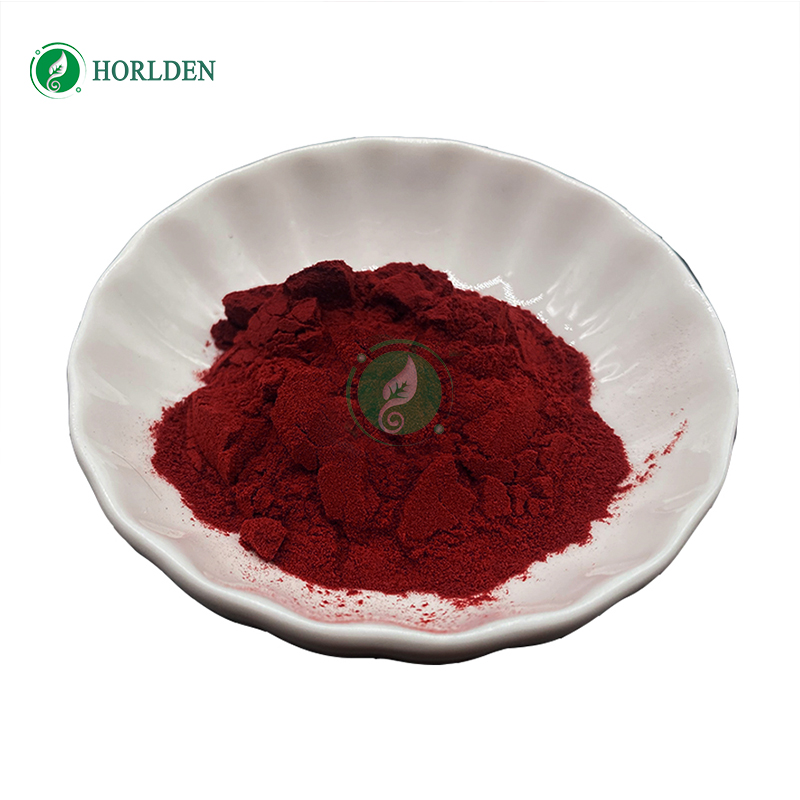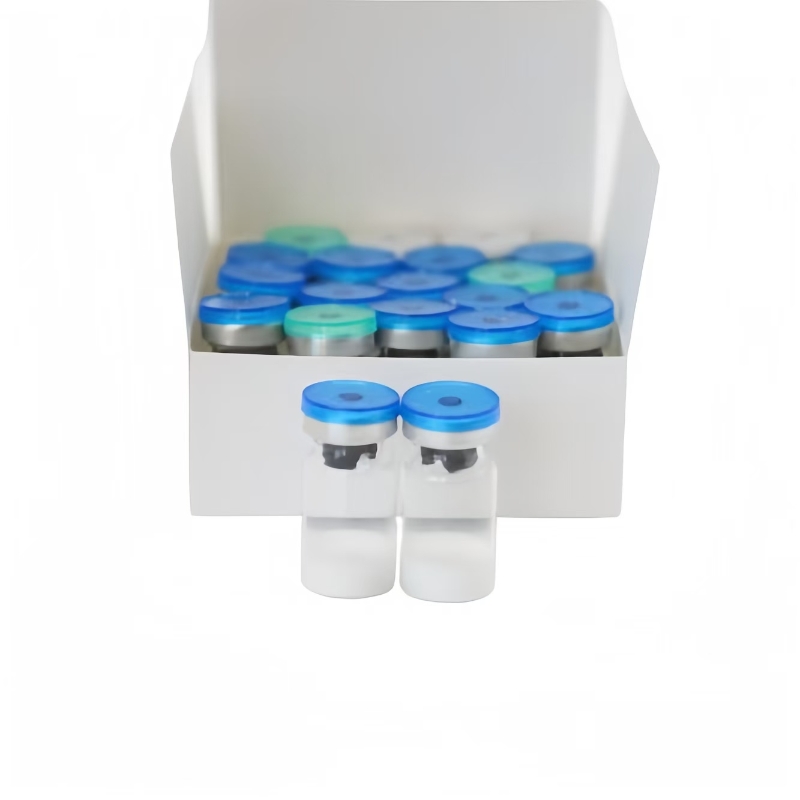Great harvest of monoclonal antibody in 2017! Approved new drug highlights, local enterprise performance, latest R & D trend
-
Last Update: 2018-01-24
-
Source: Internet
-
Author: User
Search more information of high quality chemicals, good prices and reliable suppliers, visit
www.echemi.com
After more than 30 years of accumulation, monoclonal antibody drugs have become mature in all aspects, from target development to technical improvement, from clinical research to commercialization strategy, and have become a worthy mainstream branch in the field of medicine Compared with the past few years, the popularity of monoclonal antibody drugs in the world remained unchanged in 2017: as of December 31, 2017, FDA and EMA approved a total of 10 monoclonal antibody drugs, and the total number of monoclonal antibody drugs approved in the global mainstream market (including drugs withdrawn for various reasons after approval, excluding Fc fusion protein) has reached 73; clinical stage, new project source As we move forward, new targets and technologies are undergoing concept verification, which will make monoclonal antibody drugs have greater application potential It can be said that we are going through the golden age of the development of monoclonal antibody drugs At the turn of the new year and the old year, the author tries to sort out the market situation and research and development of monoclonal antibody drugs in 2017, and make a prospect for the new year that has already begun Big data for more than 20 years: 73 new monoclonal antibody drugs have been approved in the world in total The author summarizes the new monoclonal antibody drugs approved in the global mainstream market (see Figure 1) It can be seen that the total number of approved monoclonal antibody drugs has reached 73 In one year, the number of approved antibodies has increased significantly since 2014, and has increased steadily in the following three years Monoclonal antibody drug research and development has stepped into a large-scale research and development period from the early piecemeal stage In 2017, 10 new monoclonal antibody drugs were approved in the global mainstream market, which is the highest in the past years According to the distribution of indications, 73 monoclonal antibody drugs were classified, Cancer (including blood system cancer and non blood system cancer) and immune disease (including autoimmune disease and inflammation caused by external factors) are the main diseases There are 60 antibodies against these two diseases, accounting for 82.2% of the total; infection and cardiovascular disease are also involved, with a total of 7 antibodies; another 6 antibodies are used to treat orthopedic diseases, ophthalmic diseases, rare diseases, etc Less The main reasons for indications are cancer and immune diseases First, the number of patients is large and there are many market segments Second, the research on the mechanism of these two diseases is relatively mature, and the drug target is suitable for the development of monoclonal antibody drugs The proportion of other areas is relatively small However, the author believes that with the deepening of basic research and the breakthrough of clinical trials, monoclonal antibody drugs will penetrate more and more fields other than cancer and immune diseases Approved drugs in 2017: 10 have reached new highs over the years, and there are no lack of highlights The basic information of the 10 approved monoclonal antibody drugs in 2017 is shown in Table 1 Sarilumab (kevzara), developed jointly by Sanofi and regenerator, is a monoclonal antibody targeting IL-6 receptor, which was approved by FDA in May 2017 and EMA in June 2017, and used in the second-line treatment of moderate to severe rheumatoid arthritis In 2016, saril-ra-monarch, the head-to-head phase III clinical study with adalimumab, showed that the therapeutic effect of sarilumab was better than that of adalimumab, which means that adalimumab may encounter strong competition Avelumab (bavencio) developed jointly by Merck and Pfizer and durvalumab (imfinzi) of AstraZeneca are monoclonal antibodies targeting PD-L1 Their approval and marketing increase the number of PD-1 / PD-L1 antibodies on the market to 5, and the competition in tumor immune market is further fierce Pfizer's inotuzumabozogamicin (besponsa) is an antibody drug conjugate (ADC), which can precisely kill cancer cells with high expression of CD22 through the targeting of antibodies Approved by the European Union in June 2017, the drug is the fourth approved ADC, which has improved people's confidence in the research and development of such drugs Roche's emisizumab (hemlibra) is the last approved monoclonal antibody drug in 2017 It targets clotting factors ⅸ A and Ⅹ, promotes the combination of ⅸ A and Ⅹ, thus promoting the clotting process The marketing of emicizumab can help patients with hemophilia A to reduce the frequency of medication and improve the quality of life At the same time, the drug is also the first approval of bispecific antibody in the field of non cancer It can be seen that the number of monoclonal antibody drugs approved in this year is not only increased, but also there are many bright spots Late clinical project: the pattern of "two major categories" of indications has changed According to the information retrieved by the author, as of December 31, 2017, nearly 60 new antibody drugs are in the phase III clinical research stage According to the distribution of indications, although cancer and immune diseases still occupy the majority, the proportion of research and development projects in other diseases has increased, among which the most obvious diseases are nervous system diseases, mainly Alzheimer's disease and migraine The treatment of Alzheimer's disease has not been on the market for many years, and there is a large market space If a monoclonal antibody drug is approved, the relevant enterprises will gain huge profits by filling the market gap However, from the current clinical trial results, it seems that only adocanumab of Biogen company has the hope of approval Migraine is also a long-term no ideal treatment of drugs, market space is very large However, unlike Alzheimer's disease, the migraine related R & D pipeline is progressing smoothly: enreumab (targeted cgrpr), galcanezumab (targeted CGRP) and fremanezumab (targeted CGRP) of Lilai have submitted listing applications, and phase III clinical data of ader's eptinezumab (targeted CGRP) is also very positive, and the company is also preparing to submit new drug applications in the second half of 2018 Please In other diseases such as ophthalmic diseases and blood diseases, pharmaceutical enterprises also have more layout The penetration of monoclonal antibody drug research and development into these fields is not only due to the deepening of basic research and target verification, but also due to the increasingly complex business competition Technology development and application: structural transformation and screening methods continue to break through the technical development and application of monoclonal antibody drug research and development, mainly reflected in two aspects: one is the transformation of antibody structure, the other is a new antibody screening method In the aspect of structural modification, there are three types: bispecific antibody, antibody drug conjugate (ADC) and miniaturized antibody Bispecific antibody is no stranger to us Many enterprises and laboratories around the world have different forms of bispecific antibody platforms There are three approved bispecific antibody drugs: catumaxomab, blinatumomab and emisizumab The early concept of bispecific antibody is mainly aimed at cancer treatment, hoping to improve the killing effect of drugs on cancer cells through multi-target and multi-channel inhibition; later, the concept is gradually extended to immune diseases, anti infection and other diseases However, although the design can be fully imagined, the actual clinical effect of bispecific antibody needs more verification, in addition, there are great challenges in production, which need long-term exploration and optimization The core of ADC technology is the design of the linker between antibody and small molecule drugs and the selection of the linker on antibody After long-term development, the basic problems have been solved, and ADC technology has gradually entered the stage of large-scale application At present, there are about 9 ADC drugs in clinical stage Ⅲ Miniaturized antibodies include nano antibodies and small antibody like scaffolds The development of this kind of drugs is mainly to improve some inherent defects of antibody with standard structure, including complex screening process, poor tissue permeability and high production cost At present, Belgium's Ablynx company is in an absolute leading position in the research and development of nano antibodies Through independent research and development and cooperative development, it has many projects into the clinical stage; other antibody like scaffolds, such as affinity, DARPins, etc., are also in the stage of concept verification In the aspect of screening method development, it is mainly the gradual popularization of humanized mice and the gradual maturity of antibody screening method based on single B cell These two technologies have experienced a long time of development At present, monoclonal antibody drugs obtained by humanized mouse technology have been on the market, but the single B cell antibody screening method has not been produced, but it is an obvious development direction Hot research and development target: tumor immunocheckpoint inhibitor is a unique branch Tumor immunotherapy based on immunocheckpoint inhibitor no longer only stays at the level of single drug targeted treatment, but has become a treatment idea, that is, to restore or enhance the vitality of patients' autoimmune system and use the immune system to kill cancer cells The early development is mainly aimed at the single drug treatment of CTLA-4, PD-1, PD-L1 and other immune checkpoints By preventing the inhibition of cancer cells on the body's own T cells and recovering the tumor killing effect of T cells, good results have been achieved Now, the mainstream research and development idea is to take these immunosuppressive checkpoint inhibitors as the center to explore the scheme of combined treatment with other drugs Many enterprises are exploring the possibility of using PD-1 / PD-L1 antibody in combination with other drugs on the market or under research: MSD has designed a variety of treatment schemes for keytruda combined with small molecule drugs, and hundreds of clinical trials of combined drugs based on opdivo of Bristol Myers Squibb; Lilly's commercial cooperation with Xinda, Xinji and Baiji Shenzhou involving PD-1 antibody We can also see the determination of large pharmaceutical companies to lay out tumor immunotherapy in order to get a share in the future market In addition to the combination drugs based on PD-1 / PD-L1, more immune checkpoints are becoming the hot targets of antibody research and development The development of monoclonal antibody drugs for Tim-3, LAG-3 and other targets is gradually warming up, and more types and levels of combination drugs are being developed; in the field of basic research, the regulatory mechanism of immune checkpoints is being explored, and the concept of tumor immunity is being deepened Tumor immunity is moving towards systematization and refinement With the failure of several single drug and combination drug clinical trials in 2017, the attitude of the pharmaceutical industry towards tumor immunity has gradually returned to rationality The idea of tumor immunity is very promising, but people need a lot of time to explore and accumulate in order to really understand it China's rapid rise: R & D is gradually at the forefront of the world In 2017, a total of 5 monoclonal antibody drugs were successfully applied for clinical trials in the United States So far, nine monoclonal antibody drugs have been successfully applied for clinical trials in the United States In addition, Baiji Shenzhou, Kelun pharmaceutical, Yuheng pharmaceutical and other enterprises successively authorized their own immune checkpoint inhibitor projects to foreign enterprises These information shows that domestic enterprises have not only gradually achieved good results in the field of monoclonal antibody research and development, but also their R & D strength has been internationally recognized From the perspective of monoclonal antibody drug R & D pipeline and application of major enterprises, the R & D layout focuses on two aspects:
This article is an English version of an article which is originally in the Chinese language on echemi.com and is provided for information purposes only.
This website makes no representation or warranty of any kind, either expressed or implied, as to the accuracy, completeness ownership or reliability of
the article or any translations thereof. If you have any concerns or complaints relating to the article, please send an email, providing a detailed
description of the concern or complaint, to
service@echemi.com. A staff member will contact you within 5 working days. Once verified, infringing content
will be removed immediately.







